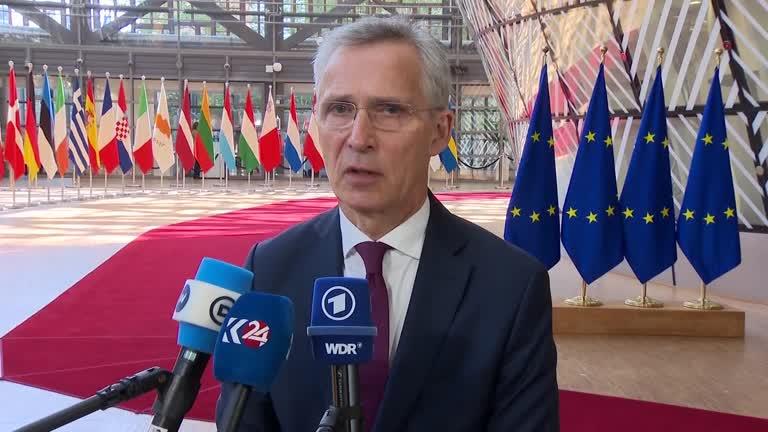Ukraine’s use of weapons supplied by its Western allies against targets inside Russia would not make NATO and its members part of the conflict, NATO Secretary General Jens Stoltenberg said at a European Union (EU) meeting on May 28.
“The fact that we are delivering equipment to Ukraine doesn’t make NATO party to the conflict,” Mr. Stoltenberg said ahead of a meeting with the EU’s defense ministers.





